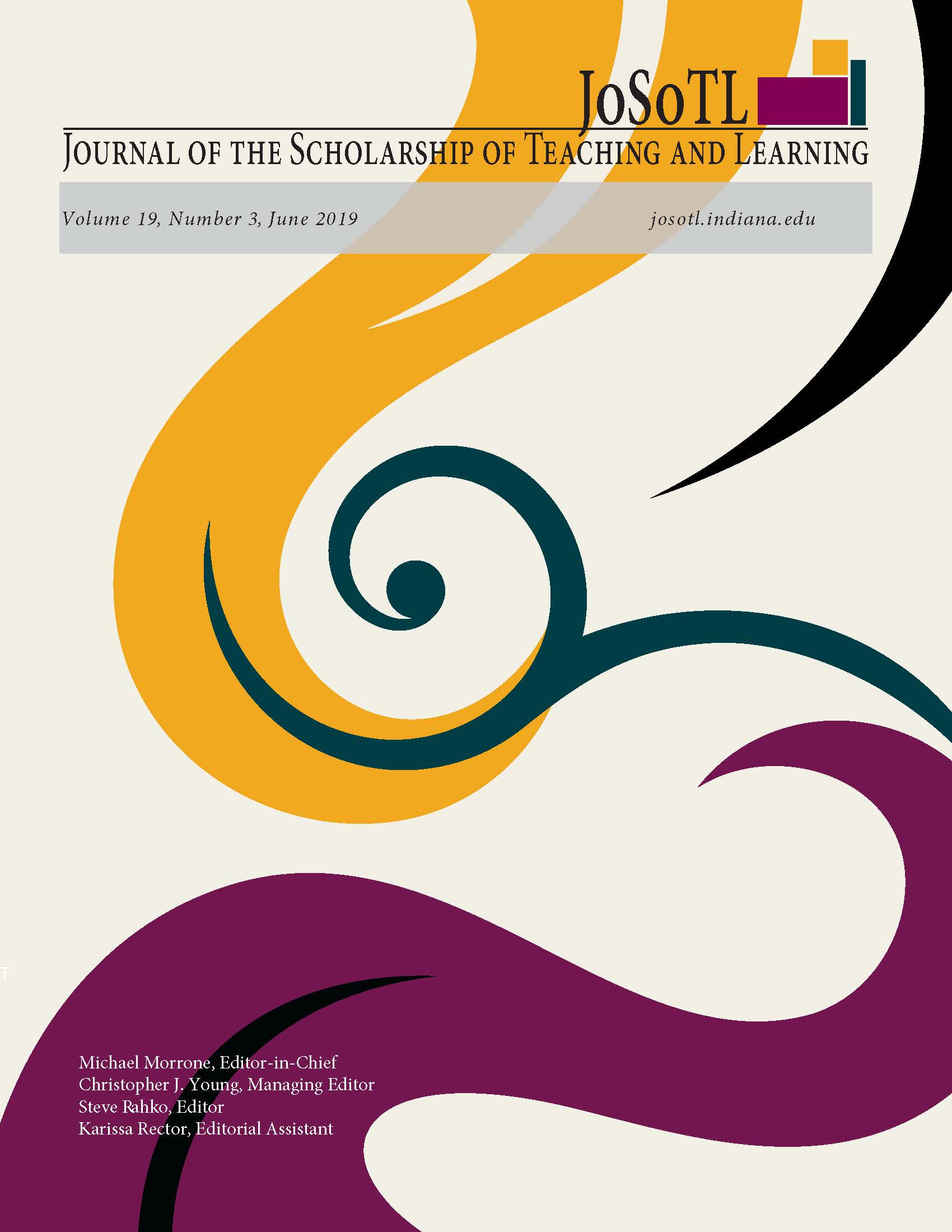Student-Directed Exam Reviews, Real-Time Collaborative Composition, and Assessment of Student Preparation
Main Article Content
Abstract
Downloads
Article Details
- Authors retain copyright and grant the Journal of the Scholarship of Teaching and Learning (JoSoTL) right of first publication with the work simultaneously licensed under a Creative Commons Attribution License, (CC-BY) 4.0 International, allowing others to share the work with proper acknowledgement and citation of the work's authorship and initial publication in the Journal of the Scholarship of Teaching and Learning.
- Authors are able to enter separate, additional contractual agreements for the non-exclusive distribution of the journal's published version of the work (e.g., post it to an institutional repository or publish it in a book), with an acknowledgement of its initial publication in the Journal of the Scholarship of Teaching and Learning.
- In pursuit of manuscripts of the highest quality, multiple opportunities for mentoring, and greater reach and citation of JoSoTL publications, JoSoTL encourages authors to share their drafts to seek feedback from relevant communities unless the manuscript is already under review or in the publication queue after being accepted. In other words, to be eligible for publication in JoSoTL, manuscripts should not be shared publicly (e.g., online), while under review (after being initially submitted, or after being revised and resubmitted for reconsideration), or upon notice of acceptance and before publication. Once published, authors are strongly encouraged to share the published version widely, with an acknowledgement of its initial publication in the Journal of the Scholarship of Teaching and Learning.
References
Balch, W. R. (1998). Practice versus Review Exams and Final Exam Performance. Teaching of Psychology, 25(3), 181–185.
Hackathorn, J., Cornell, K., Garczynski, A., Solomon, E., Blankmeyer, K., & Tennial, R. (2012). Examining exam reviews: A comparison of exam scores and attitudes. Journal of the Scholarship of Teaching and Learning, 12(3), 78–87.
Karpicke, J. D. (2012). Retrieval-Based Learning: Active Retrieval Promotes Meaningful Learning. Current Directions in Psychological Science, 21(3), 157–163.
Karpicke, J. D., & Grimaldi, P. J. (2012). Retrieval-Based Learning: A Perspective for Enhancing Meaningful Learning. Educational Psychology Review, 24(3), 401–418.
Keck, M. V. (2000). A Final Exam Review Activity Based on the Jeopardy Format. Journal of Chemical Education, 77(4), 483.
Markant, D. B., Ruggeri, A., Gureckis, T. M., & Xu, F. (2016). Enhanced memory as a common effect of active learning. Mind, Brain and Education: The Official Journal of the International Mind, Brain, and Education Society, 10(3), 142–152.
Slamecka, N. J., & Graf, P. (1978). The generation effect: Delineation of a phenomenon. Journal of Experimental Psychology. Human Learning and Memory, 4(6), 592.
Smith, C. V., & Cardaciotto, L. (2012). Is active learning like broccoli? Student perceptions of active learning in large lecture classes. Journal of the Scholarship of Teaching and Learning, 11(1), 53–61.
